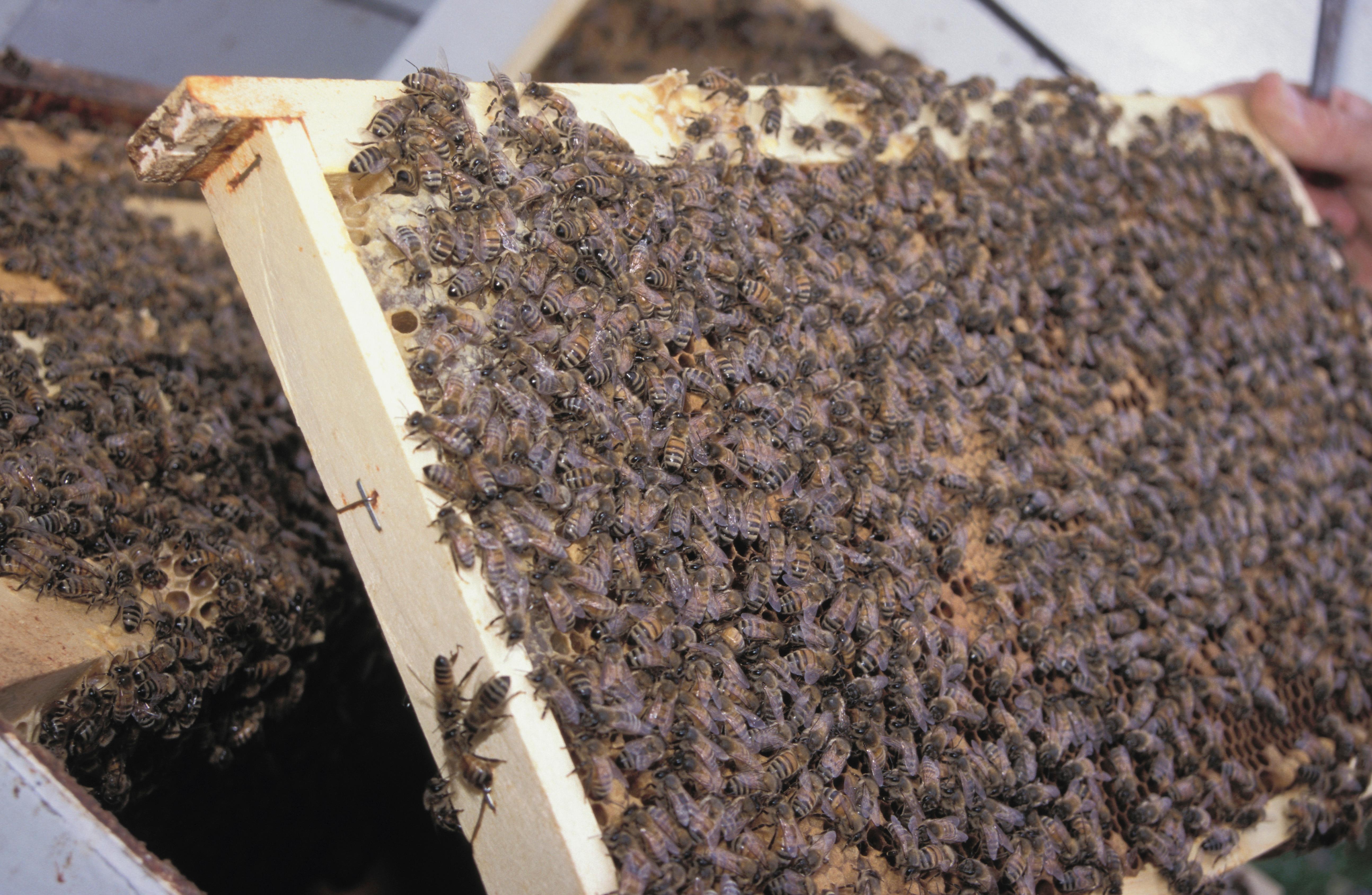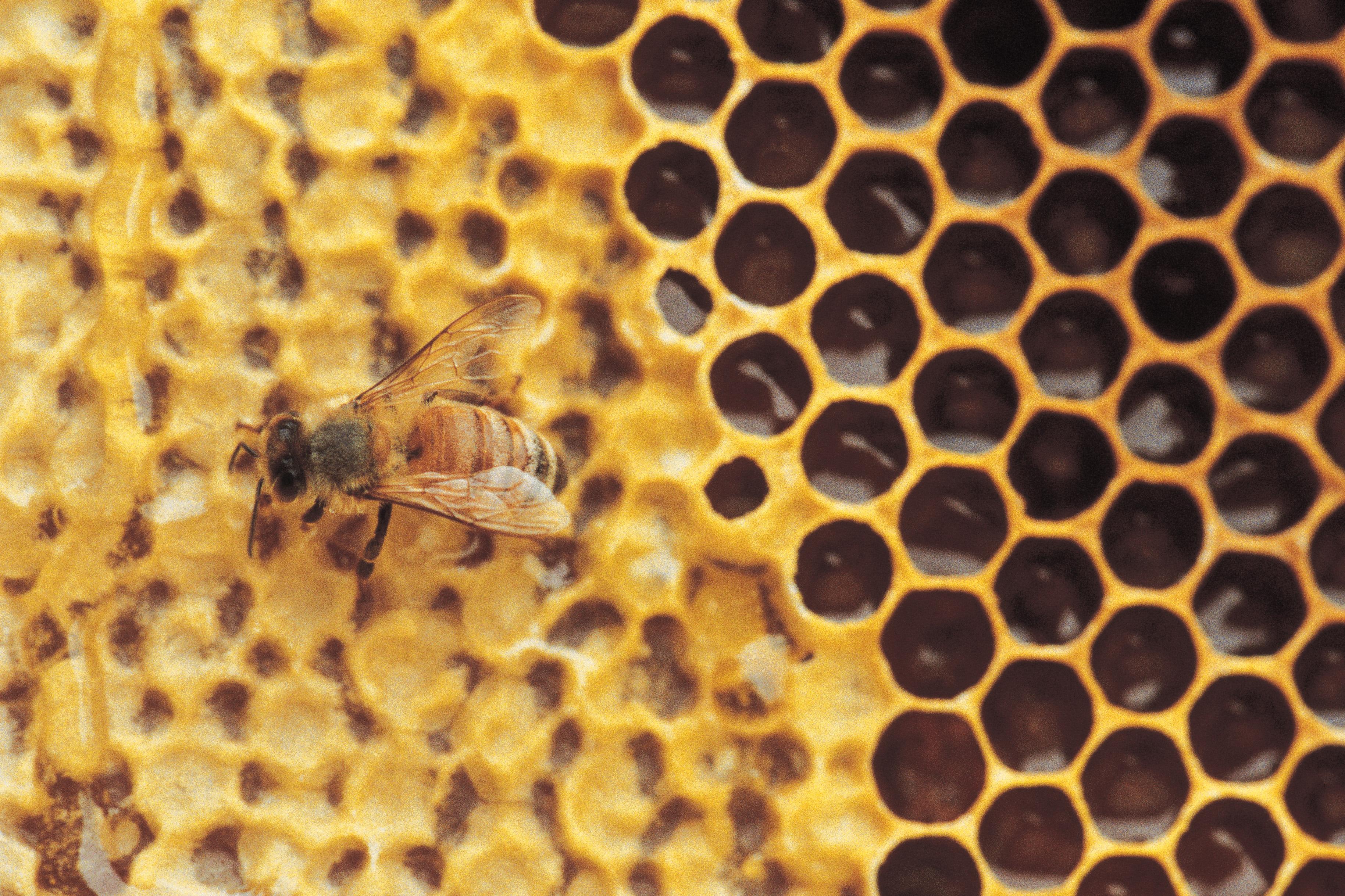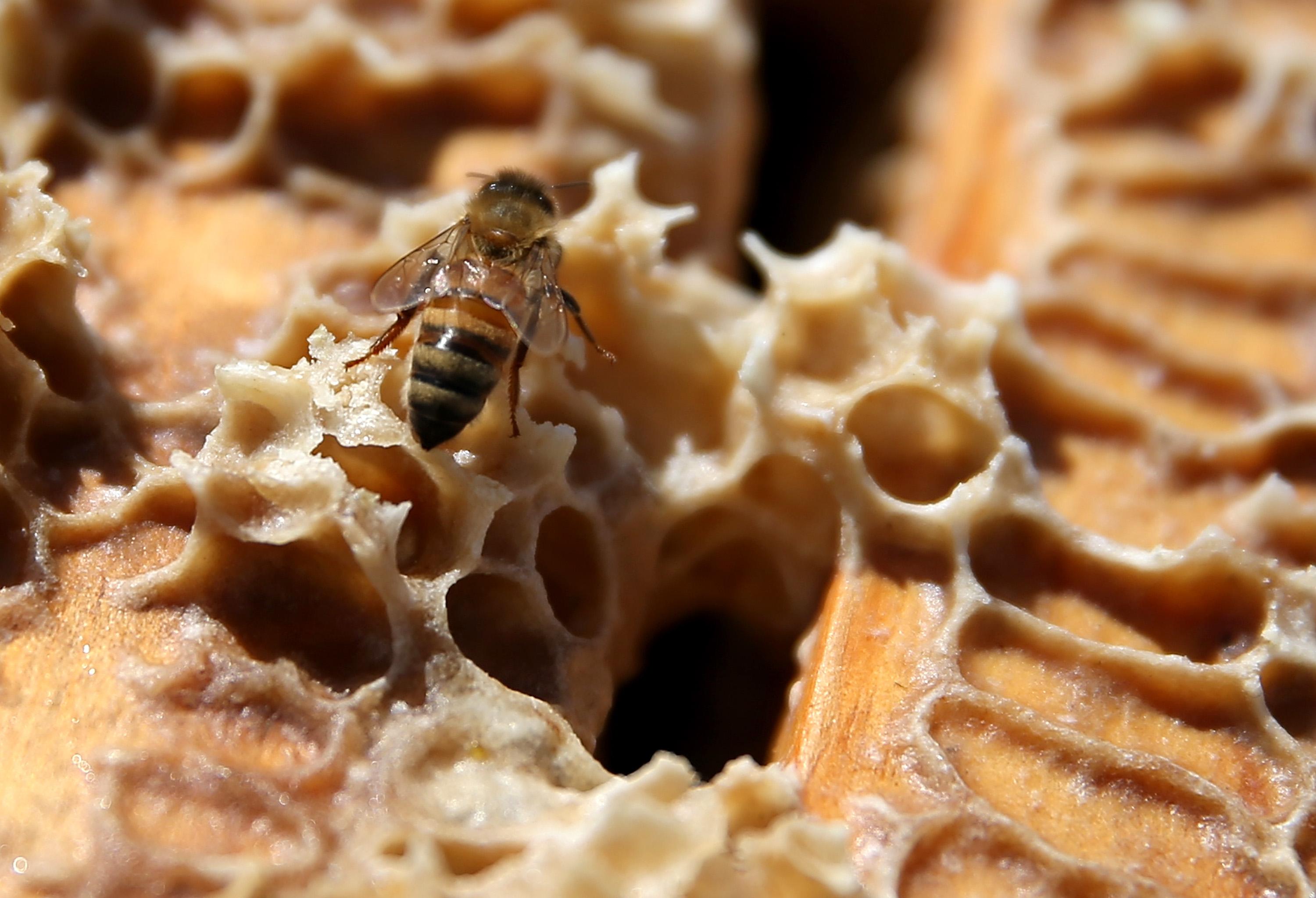Does Ethical Beeswax Exist? Here's What Cruelty-Free Sources Say
Updated Jan. 24 2023, 2:37 p.m. ET

While beeswax is a technically a natural product, it is not vegan — after all, it’s an animal byproduct made by bees! Beeswax may not be sustainable or ethical, depending on how the beeswax is harvested. Many, especially vegans, do not consider the harvesting of beeswax to be truly cruelty-free, since it technically is an animal byproduct. While cruelty-free most often refers to products that were not tested on animals, many people also use the term synonymously with vegan – no involvement of animals or animal byproducts at all.
So, it begs the question: does ethical beeswax exist? Can using beeswax products, such as beeswax candles and reusable beeswax wraps ever truly be ethical? Let’s assess the matter.
Does ethical beeswax exist?

Beeswax is not honey; it's the wax that honeybees secrete and use to mold their honeycombs. Humans have found way to use beeswax in cosmetics, makeup, and other beauty products for creamier consistencies. Beeswax is also commonly used to make nontoxic candles and beeswax wraps (a less wasteful alternative to single-use plastic wrap). However, because beeswax comes from bees, vegans will always consider it an animal byproduct and therefore, it cannot truly be considered cruelty-free or ethical.
However, there is hope for an ethical version of beeswax. Synthetic beeswax is created in a lab using fatty acids, alcohols, hydrocarbons, and esters. It is a vegan and cruelty-free alternative to beeswax, but unfortunately, since it is synthetic, it is not considered all-natural.
Other “ethical beeswax” options include beeswax alternatives made from plant-based waxes: candelilla, carnauba, coconut, olive, sunflower, or soy wax.
Is using beeswax ethical?

To obtain the beeswax, humans melt the entire beehive, boil it in water, and allow it to cool down. So, to ask yourself if using beeswax is ethical, you have to also ask yourself: Is melting a beehive ethical? Most vegans do not seem to think so. Because the demand for cosmetics and other beeswax products is so high, it can lead to unethical handling of honeybees and their hives. This refers to the mass transportation of hives as well as the rather cruel mishandling of the bees themselves.
According to Best Cruelty Free, the process of isolating the beehive for melting requires cruel treatment of the Queen Bee. Her wings are often clipped so that she cannot leave the hive. Ethical? Eh — ask the queen.
Are beeswax candles ethical?
Beeswax candles are often considered a more sustainable and nontoxic alternative to soy blend candles and toxic paraffin candles. However, beeswax candles are also not vegan and have the same issues of ethics. They burn cleaner, yes, and are generally considered nontoxic, but if the harvesting of the beeswax is not cruelty-free, ethical, or sustainable to the lifespan of the honeybees, then the beeswax candles really are not either.
So, how do you know if a beeswax candle is ethical? Research. Take a deep dive into the brands and find out as much as you can about their beekeeping and beeswax-harvesting processes. It’s important to buy from beekeepers with ethical farming practices. The companies Tatine and Tiny Ritual claim to employ such practices, but it's up to you to decide if you want to support beekeeping.
And if you prefer to steer clear of beeswax candles altogether, buy from nontoxic and sustainable candles that use plant-based wax alternatives, such as: Coast Candle (soy wax made and grown in South Carolina), Erde + Feu Candles (vegan wax with cotton wicks), and Grow Fragrance (which offers so many gorgeous, plant-based scents).
Are beeswax wraps ethical?
Beeswax wraps are often heralded in the sustainability community, because they are an eco-friendly alternative to single-use Saran wrap or aluminum foil. Beeswax wraps are reusable and can be used to wrap half-cut produce, cheese, and other foods and store them. They keep foods fresh for longer and can be washed after each use. But because these reusable and biodegradable wraps are made with beeswax, they are not vegan.
But are they ethical? Beeswax wraps face the same ethical issues that candles, and cosmetics do because of the beeswax harvesting process. So before purchasing a beeswax wrap, look into the company's practices.
Better yet, to avoid this ethical conundrum, you could try using vegan reusable wraps as an alternative. There are various vegan reusable wraps on the market that are made from plant-based waxes, and work just the same as beeswax wraps.
This article, originally published on Feb. 22, 2021 has been updated.